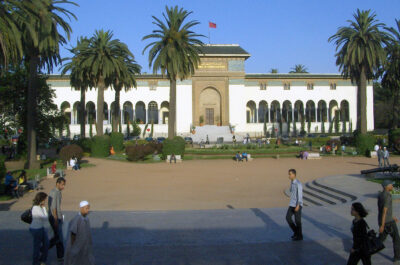The Commission has adopted two proposals for Regulations on “local border traffic”, i.e. the crossing of borders by nationals of third countries who live in border areas and regularly travel for legitimate reasons to a Member State of the Union without constituting a threat to security…
The Commission has adopted two proposals for Regulations on “local border traffic”, i.e. the crossing of borders by nationals of third countries who live in border areas and regularly travel for legitimate reasons to a Member State of the Union without constituting a threat to security. The first draft regulation is designed to facilitate local movement at the land borders between the Member States and neighbouring third countries, whereas the second extends these mechanisms to the borders between two Member States that have not yet abolished checks on persons at their common borders. The two proposals should be adopted by the Council after consultation of the European Parliament, the European Economic and Social Committee and the Committee of the Regions.
These proposals foresee practical measures to facilitate such traffic, such as special border-crossing points or corridors reserved for the inhabitants of border areas, and the possibility of crossing the border on the basis of specific documents.
For nationals of third countries subject to visa requirements who reside in border areas, the texts propose the introduction of a special visa that will be issued to them for the specific purposes of local border traffic. This visa, whose territorial validity will be limited to the border area of the Member State that issues it, will allow the holder to cross the border of this Member State many times for a stay of up to seven consecutive days and less than three months every half-year. It will be valid for at least one year and can be issued free of charge.
Given the local nature of small-scale cross-border traffic, the concrete application of this system is delegated to the Member States, which, through bilateral agreements, will be able to negotiate the specific conditions of the small-scale cross-border traffic with the third countries concerned, in accordance with the general rules drawn up at Community level and taking account of the need to ensure reciprocal treatment for citizens of the Union.
Given that the new Member States will not apply all the provisions of the Schengen rules immediately from the date of accession and that, consequently, checks at the borders with current Schengen States and between the new Member States themselves will remain in place for a certain period, the second draft Regulation proposes extending to these “temporary” borders the general rules for facilitating movement at the external borders of the Member States. It is clear that, as soon as checks at these temporary borders are abolished following a Council decision, there will no longer be any need to apply the rules on small-scale cross-border traffic at these borders.
Theodore is the Co-Founder and Managing Editor of TravelDailyNews Media Network; his responsibilities include business development and planning for TravelDailyNews long-term opportunities.




















































































































































































































